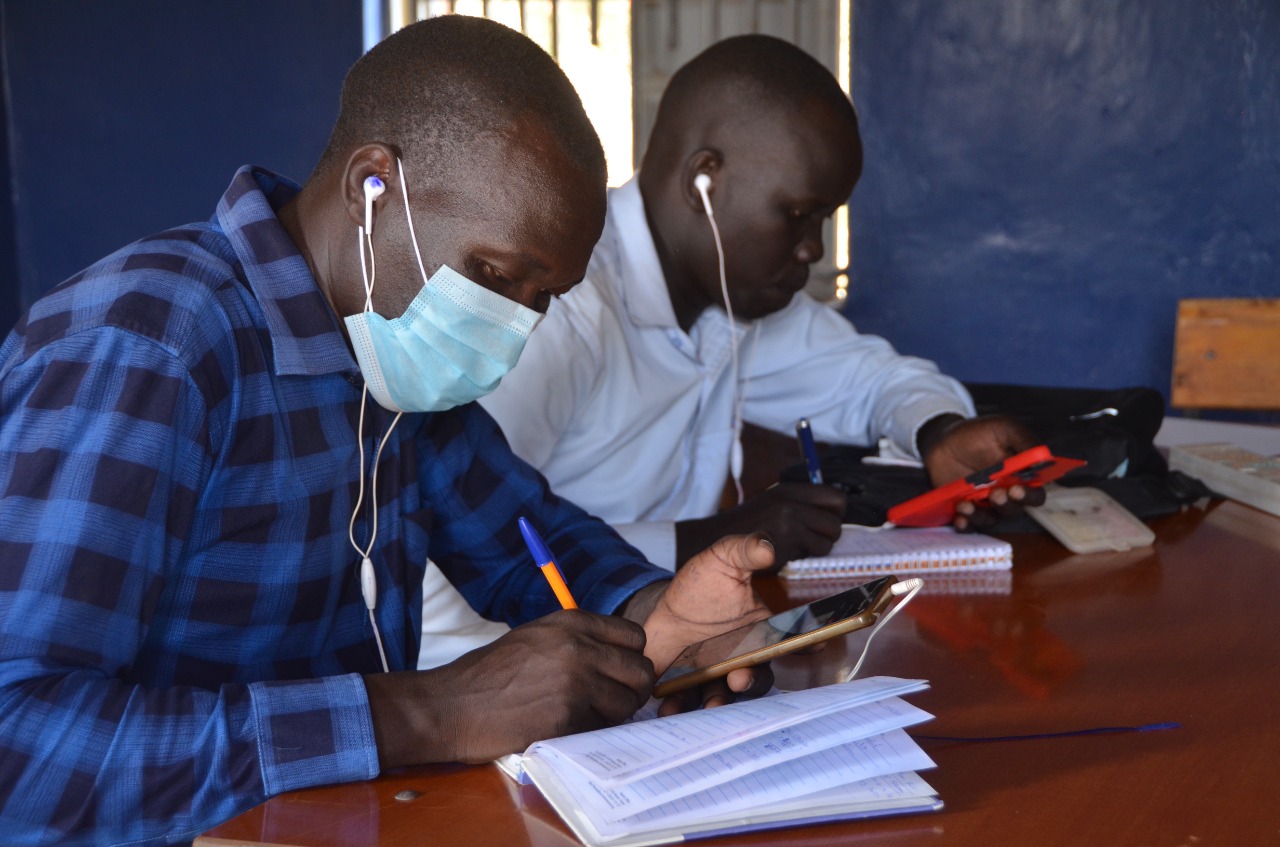
Photo courtesy of Hubs for Connected Learning Initiatives
Geographies and Temporalities of Higher Education for Displaced Students
The OSUN Working Group on Refugees, Internally Displaced Persons (IDPs) and Host Community Education is soliciting papers for an upcoming virtual lecture and panel discussion series on "Geographies and Temporalities of Higher Education for Displaced Students."Papers should present original research and should address the question of higher education for refugees and IDPs in relation to the twin themes of time and space.
Potential topics and questions can include:
Protracted and/versus emergency timeframes:
○ How has crisis-driven thinking impacted the landscape of higher education for refugees? How can we begin to attend more fully to protracted situations and what are the special needs there?
○ What comparative data do we have on short-term versus long-term educational interventions?
○ How do funding frames affect "short-termism" and crisis-response when developing education for people who have experienced displacement?
○ How do responses to recent “crises” (Syria, Burma/Myanmar, Ethiopia, Afghanistan, Ukraine) compare and how can we build knowledge bases across cases? When do things really need to be separate for separate cases?
○ What are the timeframes and expectations students have for their futures? How does programming match with, and/or alter, these timeframes?
○ How do realities of “waiting” impact students and success?
Local, regional, transnational, and global: How to leverage different approaches
○ How can higher education work most effectively at the local level? For instance, what is the role of “communities of trust”? How can we work most effectively with RLOs? What are the specific resources brought by local universities?
○ What are the special resources and benefits, as well as the risks, of regional and transnational networks in providing refugee education?
○ What student services are available and needed to better support the students in question?
○ How can we better connect students globally?
○ How can we support students in advocating for the rights and concerns of displaced youth?
○ How does programming impact students’ sense of space, community, belonging and global consciousness?
○ How can higher education responsibly advance 15x30 as a global goal, keeping in mind livelihood limitations and the number of non-refugees in higher education in many hosting countries?
○ How do specific projects and case studies impact global policies? What kinds of global implications can be drawn from case-based studies?
Research should conform to the Working Group Research Principles presented on the third page of the full call.
The presentations will also be the basis of an edited collection of research by OSUN community members, partners and affiliates, aimed at scholars and practitioners of refugee education and higher education in emergencies beyond the OSUN network.
Presentations will be scheduled in 1-hour time-slots online once per month throughout 2023. Dates and times will be announced. Presentations can feature one speaker or a panel of speakers. Individual research presentations should last 25-30 minutes and panels can have 2-3 speakers for 10-15 minutes each.
Interested OSUN colleagues should send proposals of up to 300 words (proposing either a panel or an individual presentation) and a bio of up to 100 words to the Working Group Steering Committee (Kerry Bystrom, Bard College Berlin; Ian M. Cook, Central European University; Rebecca Granato, Bard College; and Shahariar Sadat, BRAC University) via Anne-Marie Manishimwe. Those whose proposals are selected will be notified by February 15.
Deadline for submissions is Wednesday, February 1
Cross Reference: Call for Submissions,Opportunities, Research,Hubs for Connected Learning
Deadline Expired on February 1, 2023